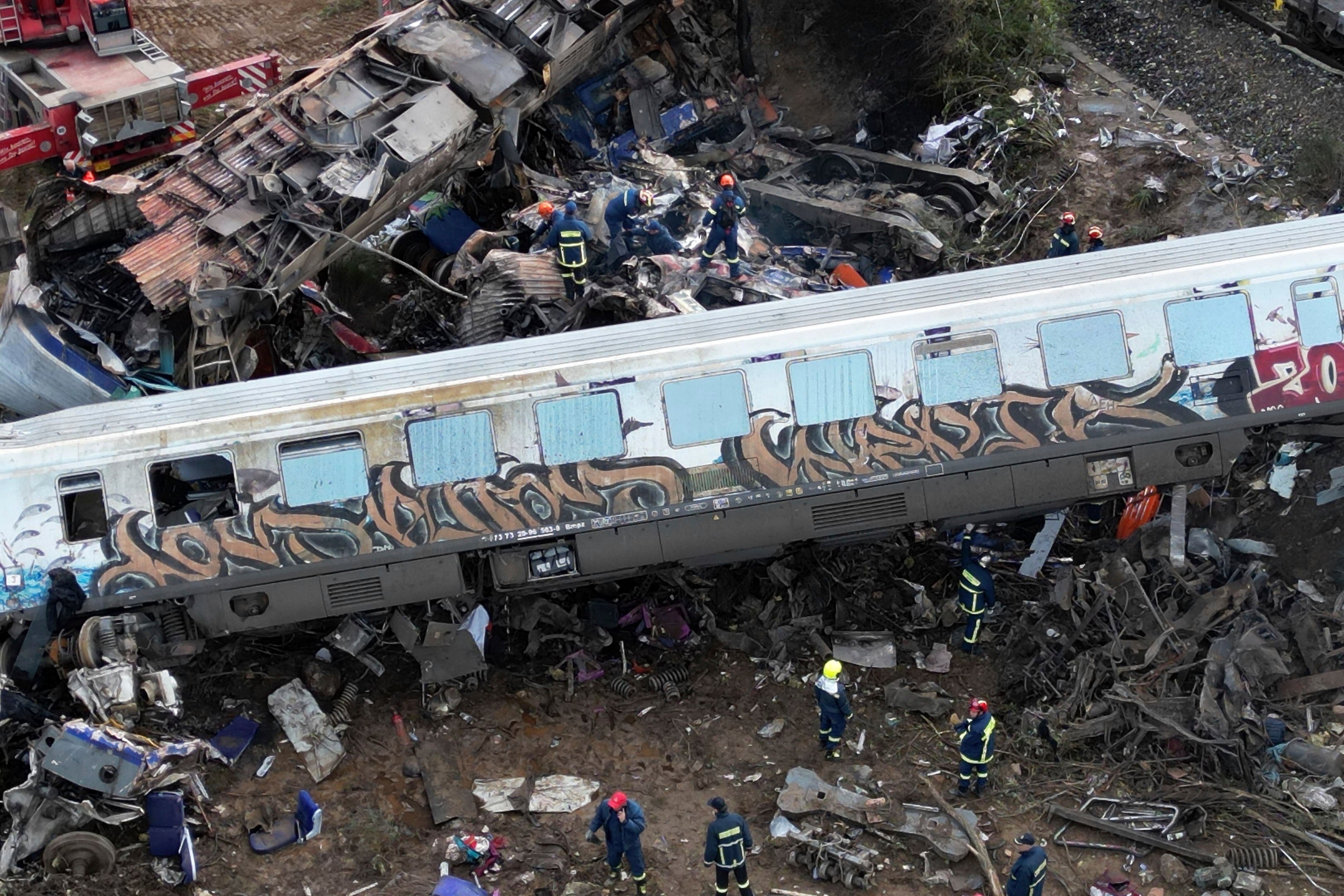Greek unions stage general strike over rail deaths
A general strike in Greece called in response to a rail disaster last month has grounded flights and extensively disrupted services with protests in cities across Greece planned

Your support helps us to tell the story
From reproductive rights to climate change to Big Tech, The Independent is on the ground when the story is developing. Whether it's investigating the financials of Elon Musk's pro-Trump PAC or producing our latest documentary, 'The A Word', which shines a light on the American women fighting for reproductive rights, we know how important it is to parse out the facts from the messaging.
At such a critical moment in US history, we need reporters on the ground. Your donation allows us to keep sending journalists to speak to both sides of the story.
The Independent is trusted by Americans across the entire political spectrum. And unlike many other quality news outlets, we choose not to lock Americans out of our reporting and analysis with paywalls. We believe quality journalism should be available to everyone, paid for by those who can afford it.
Your support makes all the difference.A general strike in Greece called in response to a rail disaster last month grounded flights and extensively disrupted services, with protests in cities across the country planned for Thursday.
The strike also kept ferries to the Greek islands at port, left public hospitals running with emergency staff, halted public transport services and led to class cancellations at state-run schools.
Unions have rallied behind railway workers’ associations that have staged rolling walkouts since the head-on train collision in northern Greece on Feb. 28 that left 57 people dead and dozens injured.
The government, which faces parliamentary elections before the summer, says rail services will restart on March 22 and be restored gradually through April 11, with additional staff to monitor safety and mandatory speed reduction rules along sections of the track.
Prime Minister Kyriakos Mitsotakis’ center-right government has seen a strong lead in opinion polls reduced in recent weeks over its main rival, the left-wing Syriza party, with the two sides also locked in an ideological debate over how to reform Greece’s antiquated rail network.
Mitsotakis has promised clearer boundaries between privatized services and the authorities overseeing them, seeking assistance from European Union experts in drawing up the changes. His political opponents argue that the poorly managed dismantling of agencies under state control has ultimately compromised rail safety.